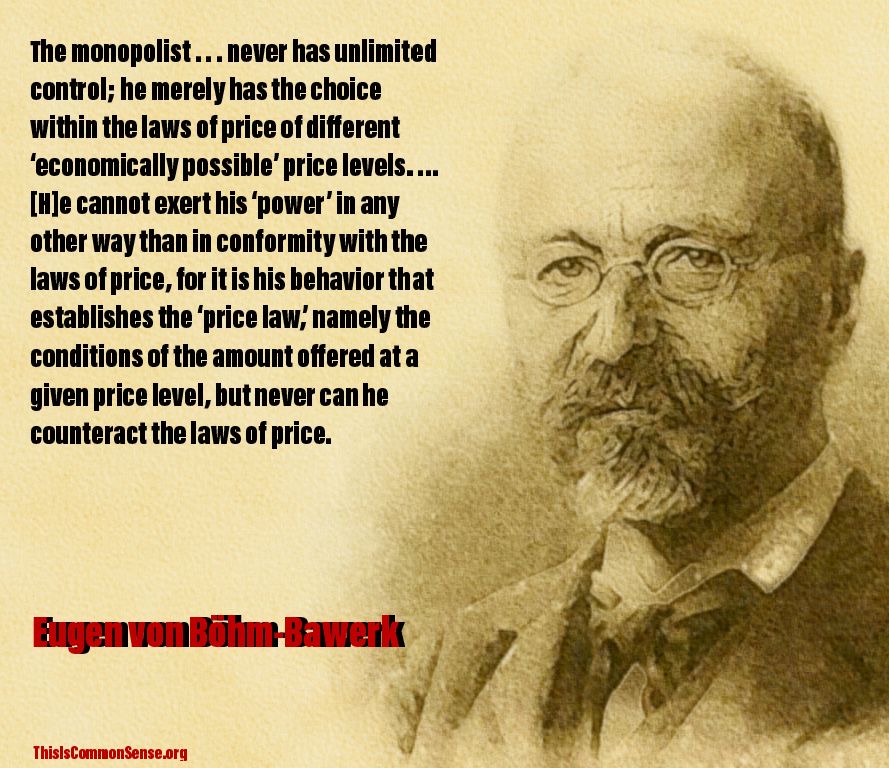Eugen von Böhm-Bawerk, “Control or Economic Law,” Zeitschrift für Volkswirtshaft, Sozialpolitik und Verwaltung, Volume XXIII (1914): 205–71; John Richard Mez, Ph.D., translator.
The monopolist . . . never has unlimited control; he merely has the choice within the laws of price of different ‘economically possible’ price levels. He can select that price at which the combination of profit for each article, and the number of articles to be sold at that price, are likely to promise the greatest total profit, but he cannot exert his ‘power’ in any other way than in conformity with the laws of price, for it is his behavior that establishes the ‘price law,’ namely the conditions of the amount offered at a given price level, but never can he counteract the laws of price.
Categories
Eugen von Böhm-Bawerk

1 reply on “Eugen von Böhm-Bawerk”
To some extent, every good or service must compete with every other good or service; to some extent, every good or service is distinct from every other good or service. Thus, an argument could be made that nothing is a monopoly; and an argument could be made that everything is a monopoly. A clear and coherent definition of “monopoly”, providing an observable difference, is needed for this term to be of much use.
Unfortunately, many people push for law with an insistence that they, administrators, and judges can just “know it when they see it!”